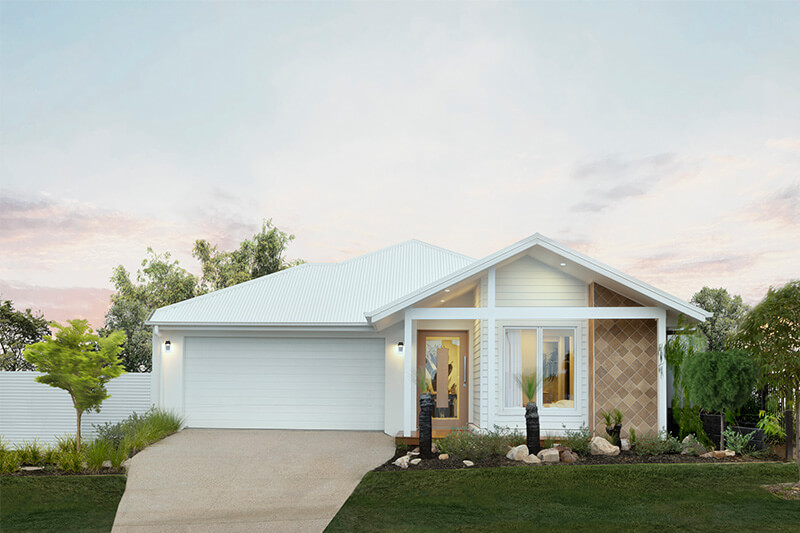What are Building Covenants?

Building covenants are an essential consideration when you are planning to build a home on a specific plot of land. These covenants dictate certain restrictions that must be adhered to during the construction process and afterwards. Because building covenants in QLD can significantly impact what you can and can’t build on your property, it’s important to have a firm understanding of them. Here, we explore the different types of property covenants, their purpose and how they might affect your build. We are specifically focusing on QLD building covenants as Brighton Homes operates exclusively in Queensland.
What is the purpose of a Covenant?
If you’ve ever wondered ‘What is a covenant?’ the answer is simple on the surface but has a few complexities when you start digging deeper. Building covenants, also known as property covenants (and also land covenants), are a legally binding agreement imposed by the developer or local council to regulate the construction and aesthetics of a property within a specific area.
The main purpose of having a covenant in place is to ensure uniformity and to maintain a degree of design, appearance and quality throughout a neighbourhood or development.
Building covenants serve a few different purposes:
- Property value: Building covenants aim to maintain property values by enforcing consistent architectural styles to maintain the aesthetic appeal of the community.
- What you can do with the land: Some covenants may include guidelines around how the land can be used (e.g. buying a block of land and building later), setbacks, fencing, landscaping and more.
- Safety: Other covenants may focus on safety issues, such as building-height restrictions, fire safety, as well as the minimum amount of space between properties to prevent overcrowding.

What Types of Property Covenants are there in QLD?
There are two main building covenants in Queensland – positive and restrictive. Positive covenants are an obligation for the property owner to do something specific, such as maintaining certain standards or contributing to shared facilities. Restrictive covenants, on the other hand, impose limitations and dictate what you can and can’t do, such as restricting certain building designs or land uses.
Here are some of the more specific QLD building covenant examples:
Architectural Style Covenants
These outline the type of architecture and design principles that must be followed. From specifying particular architectural styles – such as modern, traditional or colonial – to providing guidelines on building materials, colours, roof styles and overall aesthetics.
Setback Covenants
Setback covenants determine the minimum distance that a building must be set back from the road or other property boundaries. They are in place to prevent overcrowding and ensure there is sufficient space for landscaping and parking.
Landscaping Covenants
Landscaping covenants revolve around the maintenance and appearance of outdoor areas. They may include rules around gardens, lawns, trees and shrubs.
Building Material Covenants
This type of covenant focuses on which materials you can use for construction of a property, such as brick, stone, timber or render. They are all about maintaining a consistent and high-quality aesthetic throughout the community.
Lifestyle Covenants
While less common than other covenant types, lifestyle covenants may be found in certain developments. They can include restrictions on home-based businesses, the type of pets you can have, or even how outdoor spaces can be used.
What Do Building Covenants Cover?
In Queensland, building covenants typically include guidelines on:
- The type of structure that can be built
- Dwelling size
- Design and layout (e.g. number of stories, maximum height, floor-area restrictions)
- Exterior materials allowed
- Colours used externally
- Fencing
- Landscaping and garden maintenance
- Off-street parking and garage maintenance
- Privacy control
- Property maintenance and upkeep
- Energy rating and property
It is important to note that building covenants don’t cover all aspects of construction. They focus on external aesthetics rather than your design and style choices inside. Just remember that local regulations and building codes will still need to be followed.

Are There Any Risks Associated with Covenants?
While building covenants serve an important purpose, there are some potential risks to be aware of:
- Restrictions on customisation: Covenants may limit the flexibility of your exterior design choices. If you have specific preferences or unique ideas for your dream home, you may need to ensure that they align with the covenant guidelines.
- Additional Costs: Adhering to covenant guidelines may lead to additional costs during the construction process. For example, if specific building materials or finishes are required, they may be more expensive than unapproved alternatives.
- Enforcement challenges: In some cases, the enforcement of covenants may vary. You should always understand the mechanisms in place to stay compliant and resolve any disputes.
- Future modifications: If you plan to make additions to your home in the future, you should consider whether these changes will comply with existing covenants. Some covenants require approval for alterations, and there may be associated costs and restrictions.
How long do property covenants last in QLD?
In most cases, building covenants in QLD will apply to the property indefinitely – or as long as the developer enforces them. However, it is not uncommon for some covenants to become obsolete once construction finishes. If you are unsure about how long the covenants on your property and land will last, make sure you speak with a property lawyer or the relevant authority.
Do Covenants Still Apply on a Resale?
That depends. While most building covenants will remain in effect even when the property is sold or transferred to a new owner, if they haven’t specifically agreed to those terms it can become a legal grey area.
As a buyer who knows about existing building covenants, you will be bound by these guidelines and must ensure compliance with them. Make sure you thoroughly review any property covenant before purchasing a home to ensure they align with your future plans for the property.
When selling, it’s important to disclose any existing covenants to future owners. This ensures they understand their obligations and any restrictions associated with the property before signing on the dotted line.
Can I Remove a Property Covenant in QLD?
Removing a property covenant in Queensland can be a complex process. It usually requires the consent of all parties involved, including the original covenant creator, the developer and any relevant authorities. It could also involve legal proceedings and can be a time-consuming and costly process.
If all parties agree, it may be possible to amend certain parts of the building covenant rather than removing it entirely. This can give you some flexibility while still allowing the developer to maintain the overall intent of the covenant.

How Do Covenants Affect the Value of My Property?
Enforcing covenants can have a positive or negative effect on property value, and it largely depends on the specific covenants themselves.
Covenants can have a beneficial impact on property value by providing:
- Consistency and uniformity of homes
- Preservation of property values throughout the neighbourhood
- Quality assurance during the construction process.
However, there can also be potential negative effects, such as:
- Restrictions on customisation (especially exterior design choices)
- Higher construction costs due to the need for specific materials or finishes.
How to Find Covenants on a Property
- Contract of sale: The contract of sale should include details about any existing covenants on the property.
- Title search: Conduct a title search through Titles Queensland or a professional conveyancer. This will give you information about any registered covenants on the property.
- Developer: Speak to the property developer to ask about any existing building covenants, and be sure to request a copy of the covenant documents.
- Council records: Check with the local council to see if they have any records of covenants for a specific property or development.
Future Owners: Build Your Dream Home with Brighton Homes
With Brighton Homes, you’ll not only get access to a wealth of incredible home designs, but you will also be able to speak to our expert team who have decades of experience in the local market – including navigating building covenants. Our transparent process keeps you informed at every stage of the journey, and our knockdown-rebuild services allow you to construct a stunning new home that meets all your expectations.
